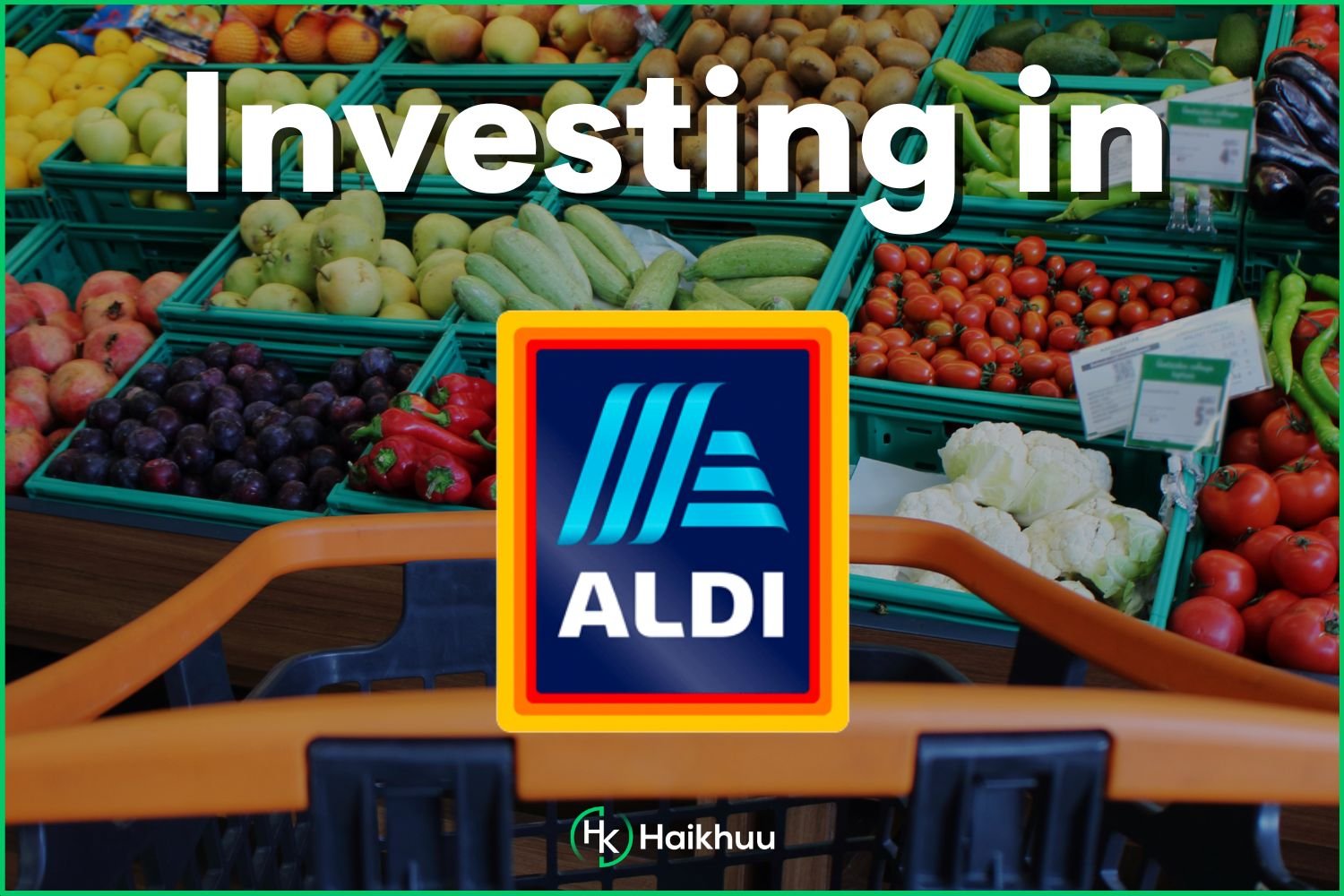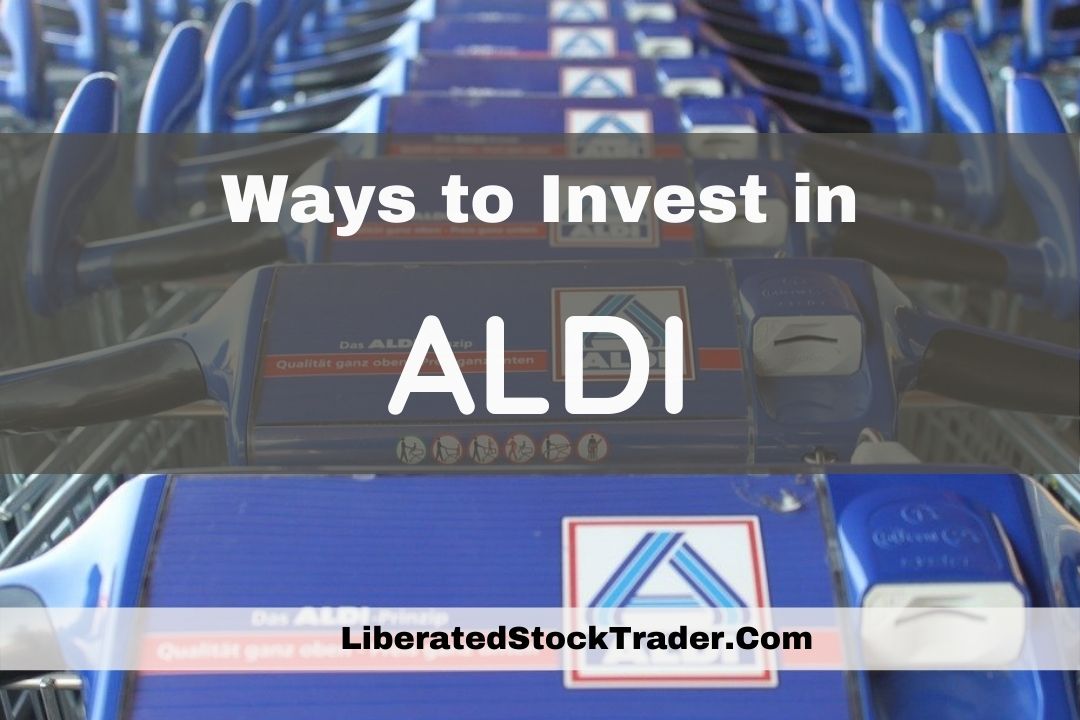Are you looking to invest in the next big thing in the grocery industry? Despite its massive global presence and impressive financial performance, Aldi, the international supermarket giant, is currently off-limits to individual investors seeking to buy its stock.
Aldi's story is one of remarkable growth and unwavering commitment to providing quality groceries at competitive prices. With over 6,500 stores spread across 11 countries, the company has carved a significant niche in the global retail landscape. The expansion continues, with ambitious plans to bolster its presence in the U.S. market. By the close of 2023, Aldi aimed to operate over 2,400 stores nationwide, spanning 38 states. This expansion speaks volumes about the company's strategic vision and its capacity to adapt to evolving consumer preferences.
The company's operational scale is considerable, with over 52,000 employees in the U.S. alone by the end of 2022. Aldi's footprint is also notable in the UK, where it operates over 990 stores. The journey began in Germany, where the inaugural store opened its doors, setting the stage for what would become a global phenomenon. However, unlike many of its competitors, Aldi's structure and ownership are unique, which has a direct impact on how potential investors can interact with the brand. Neither Aldi Nord nor Aldi Sd, the two sister companies that form the Aldi empire, currently sells stock, whether in Germany or any other part of the world. Instead, the companies remain privately owned, firmly under the control of the Albrecht family.
- Mini Dachshund Puppies Colors Care More Find Yours Today
- Find The Best Aerial Photography In Phoenix Beyond
The Albrecht family's influence extends beyond the financial aspects of the business; it also reflects their profound personal commitment. Theo Albrecht passed away in 2010, followed by Karl Albrecht in 2014, solidifying that their relatives, including their children, are the principal owners of these grocery empires. The absence of publicly traded stock is a key characteristic of Aldi, making it a subject of both curiosity and frustration for investors eager to capitalize on the company's success.
Despite the lack of "Aldi stock market price" data, the company's financial performance is a compelling narrative in itself. Global sales are projected to surpass $150 billion, a testament to the effectiveness of Aldi's business model and its ability to resonate with consumers around the world. The company's profitability and the unwavering investor interest in an Aldi IPO are driven by its strong market presence and robust financial performance. The absence of publicly traded stock means individual investors cannot trade the companys shares publicly. This private status is maintained across both Aldi Nord and Aldi Sd, and there are currently no immediate plans to list the company on the stock market, a fact that underscores the Albrecht family's approach to preserving control.
The world of financial speculation, however, does not rest. If Aldi were to announce an IPO, it would be a major market event. Based on competitor pricing, the initial Aldi stock price could be estimated at a range of $40 to $100 per share. This is an estimate, however, based on the valuation of similar companies in the grocery sector. Given the current business model, the short answer to whether one can buy Aldi stock is a resounding no; Aldi is a privately-owned company. The grocery chain's headquarters are in Germany and it is owned by Aldi Einkauf GmbH & Co.
- Discover Algerian Traditional Dress A Cultural Journey
- Visit The Rocky Steps Phillys Icon Art Museum Guide
If Aldi were to go public, the speculation around its market price would likely revolve around its market valuation. This valuation would depend on several factors, including Aldi's revenue, profitability, growth potential, competitive position, and overall market conditions. To reiterate, Aldi is not a publicly traded company, and therefore, cannot be found on any stock exchange. The company remains firmly under the control of the Albrecht family via its two subsidiary companies, Aldi Nord and Aldi Sd.
As of this writing, the specifics of Aldi's financial performance, such as its stock performance and how it has done against benchmarks like the S&P, are not directly available in the context of publicly traded stock. As a result, investors can't buy or sell shares of the supermarket chain directly. Instead, investors often need to explore other grocery chains publicly traded on the stock market, such as Walmart (WMT), Kroger (KR), or Costco (COST).
Aldi's pricing strategy is a complex blend of several factors. Production and operating costs, market conditions, local regulations, consumer demand, and the competitive landscape all play a crucial role in determining the price of products. The commitment to low prices while maintaining high-quality standards is a cornerstone of Aldi's business model, driving customer loyalty and propelling its expansion.
Here is a breakdown of Aldi's key features:
| Feature | Details |
|---|---|
| Global Presence | Over 6,500 locations across 11 countries. |
| U.S. Expansion | Plans for over 2,400 stores nationwide by the end of 2023. |
| U.S. States Presence | Operating in 38 U.S. states. |
| U.S. Employment | Employs more than 52,000 people in the U.S. by the end of 2022. |
| U.K. Locations | Over 990 locations in the UK. |
| Ownership Structure | Privately owned by the Albrecht family. |
| Stock Status | Not publicly traded; no stock market presence. |
| Financial Performance | Global sales projected at over $150 billion. |
| IPO Plans | No current plans for an IPO. |
| Indirect Investment | Investors can explore indirect investment options in related sectors. |
Despite the lack of a direct investment avenue, the success of Aldi is a fascinating case study in the retail sector. It showcases the power of a well-defined business model and a commitment to customer value.
For further information, you may consult reputable financial news sources and business analysis publications. These outlets often provide in-depth reports on the financial performance and strategic moves of leading retail companies, including Aldi's competitors. Investors interested in the industry can follow the trends and financial reports of publicly traded grocery chains. It's also worth noting that the competitive landscape in the grocery industry is constantly changing, with new players emerging and established brands evolving to maintain market share and consumer loyalty. If the situation changes and Aldi announces an IPO, news media will provide the most up-to-date information. Currently, one cannot buy Aldi stock directly.



Detail Author:
- Name : Raegan Hoppe
- Username : xwalsh
- Email : kiana35@hotmail.com
- Birthdate : 2001-10-25
- Address : 79929 Donnell Valley Lake Kassandraport, WY 67432
- Phone : 1-602-510-8378
- Company : Flatley LLC
- Job : Security Systems Installer OR Fire Alarm Systems Installer
- Bio : Nesciunt non provident rerum ullam eum et. Quibusdam optio rerum molestiae enim. Qui possimus autem sit necessitatibus. At sit voluptatem sunt tempore voluptatem nihil.
Socials
twitter:
- url : https://twitter.com/amiya.zemlak
- username : amiya.zemlak
- bio : Quibusdam architecto error quia aut velit quia natus. Atque quia eveniet voluptatum eaque ut.
- followers : 1103
- following : 1687
facebook:
- url : https://facebook.com/amiya.zemlak
- username : amiya.zemlak
- bio : Odio soluta dolorem tempora voluptatibus ea voluptatem.
- followers : 6146
- following : 1641
instagram:
- url : https://instagram.com/amiya_official
- username : amiya_official
- bio : Similique consequuntur eum sint delectus rerum. Nulla autem numquam necessitatibus iusto.
- followers : 2601
- following : 1906